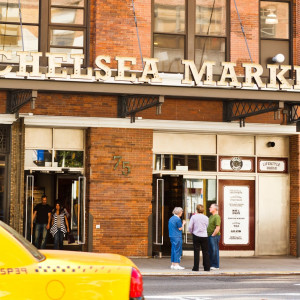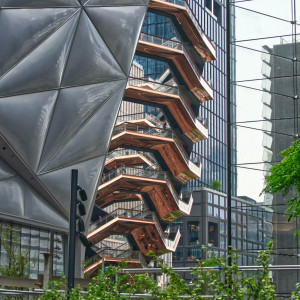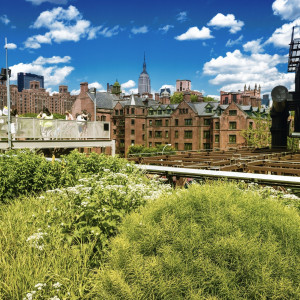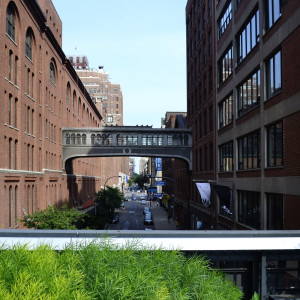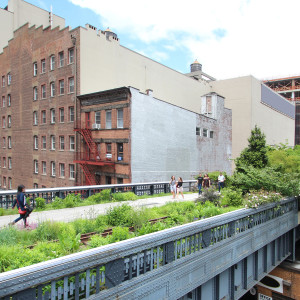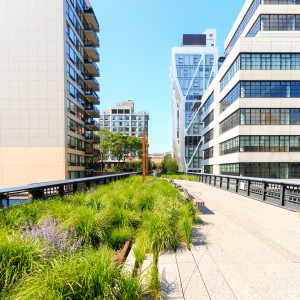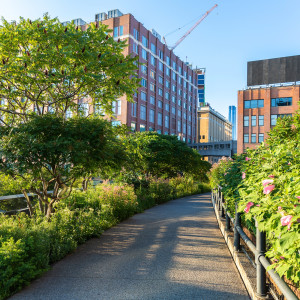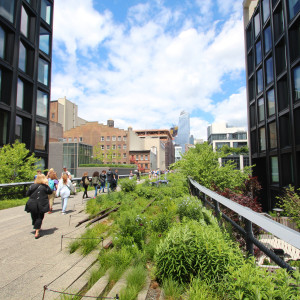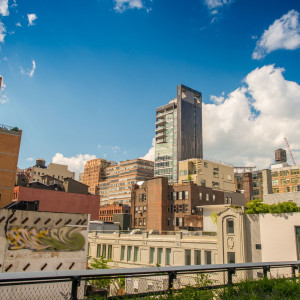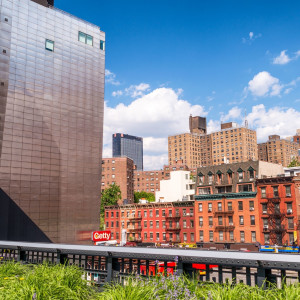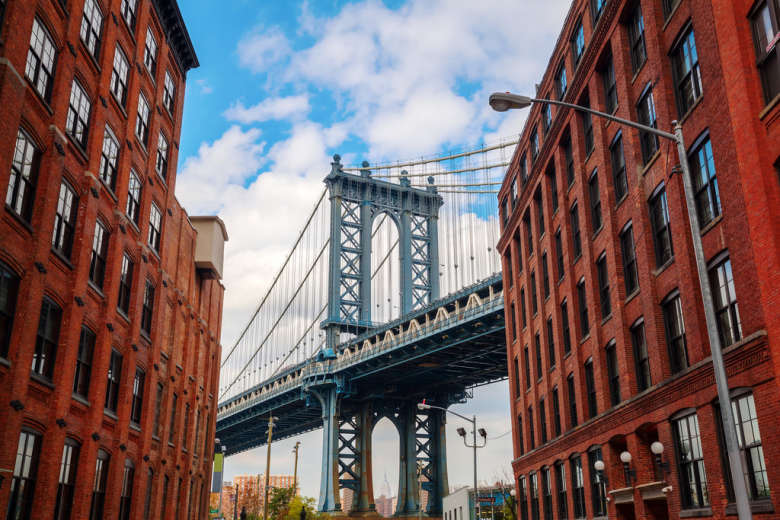Tour Details
Duration
3 hours
Product Type
Tour
Venues
- High Line Park
- Meatpacking District
- Chelsea
- Hudson Yards
Select a date
Tour Description
The meandering, block-paved streets of Manhattan's meatpacking district and the old, steel rail tracks of the elevated train that runs overhead provide a glimpse back through time to an era when New York lay at the crossroads of American commerce. Today, with its upscale restaurants and boutiques, the area has reinvented itself as one of the most exciting destinations in the city. How? By the development of that old elevated railway—the High Line—into one of the coolest, most vibrant places in New York. During this 3-hour High Line tour, we'll join an architect or historian for an in-depth look at how the High Line was rescued from the dustbin of history and, by extension, trace the history of New York's industrial age from the 1840s to the 1940s to today.
Meatpacking District - Some Context
We'll begin our walk by looking at the rise of the meatpacking industry, industrial innovation, and urban planning in this part of Manhattan. Architectural remnants of commerce and the stunning architectural details are still evident in this neighborhood, including the predominance of brick facades, the aesthetic reign of certain architects, the use of metal canopies, and, of course, the wonderful Belgian block paving visible on most streets. Along the way, we'll learn how the meatpacking industry declined (along with the Hudson waterfront) with the rise of containerized shipping, and some of the innovative preservation work that's going on here that, in turn, has made the area one of the hottest locales on the island.
High Line Tour
With the basic history under our belt, we'll turn our attention to the High Line, a former elevated freight railroad built in 1933 by the New York Central Railroad. At the time of its construction, the High Line was an innovative and efficient way to move freight from warehouses to trains and avoid the recurring theft that plagued streetcar services. Such businesses as Bell Laboratories and Nabisco, which ran plants and warehouses in the meatpacking district, benefited from this greatly.
Icon of Urban Renewal
After sitting abandoned and broken for several decades, the High Line was rescued by a robust nonprofit and converted into a stunning elevated park, or greenway, similar to the Promenade Plantée in Paris. Designed by architect Diller Scofidio Renfro along with the acclaimed landscape firm Field Operations, the High Line has rapidly become one of the most beloved open spaces in the city.
We will also focus heavily on the conservation of the High Line, its redevelopment, and the thorny political and design issues that lined its path to redemption. We'll emerge with a strong appreciation for American industrial heritage and how old, rusty places like the High Line and Meatpacking District can find new life in the contemporary city.
Our tour concludes near Hudson Yards, a commercial space that was constructed above functional train yards. It is the largest plaza developed in Manhattan since Rockefeller Center.
We will also focus heavily on the conservation of the High Line, its redevelopment, and the thorny political and design issues that lined its path to redemption. We'll emerge with a strong appreciation for American industrial heritage and how old, rusty places like the High Line and Meatpacking District can find new life in the contemporary city.
Our tour concludes near Hudson Yards, a commercial space that was constructed above functional train yards. It is the largest plaza developed in Manhattan since Rockefeller Center.
(For those interested in urban planning in New York, consider our NYC Architecture tour or Greenwich Village tour.)
FAQ
Where do we meet? Where does it end?
Generally speaking, the walk begins in the heart of the Meatpacking District at 14th Street and 9th Avenue. Your confirmation email will have the exact meeting point details along with a map. The walk typically ends at Hudson Yards, near The Vessel.
What if it’s raining?
Tours operate rain or shine, but in the case of inclement weather, your guide will modify the tour so more time is spent indoors. It never hurts to have an umbrella on hand.
Is this tour good for kids?
Yes! We have some excellent family-friendly guides who can appeal to the learning styles of children. Please book privately if you have children under 13. Feel free to provide us with information about your children, such as their favorite school subjects and hobbies. This way, we can match you with the best possible guide.
Is this a walking-intensive tour? Is the tour mobility-friendly?
This walk covers about 1.5 miles overall. There are occasional opportunities to sit, use the bathroom, and get something to drink if needed. The High Line is wheelchair-accessible by elevator at various points; please contact us with any questions.
Experts
Where You'll Start
–
57 Reviews
Reviews can only be left by Context customers after they have completed a tour. For more information about our reviews, please see our FAQ.
Matico is excellent, everyone on the trip was impressed and both enjoyed the walk thoroughly while absorbing/learning a lot, full marks
Michael
Reviewed on:
Apr 14, 2014
Michelle was so enthusiastic about this area of New York. Her background as a professor and practicing architect made this walk particularly interesting.
My husband and I had walked he High Line before, but Michelle was able to pint out things that we had missed and to bring the time period of the High Line and the activity of the meat packing district to life. Her knowledge of the history and the architecture of the buildings in the area also made the walk more interesting.
Maria
Reviewed on:
Nov 17, 2013
My wife and I appreciated the specificity of the tour and the unique niche on which the tour focused. Context offers a deeper learning experience by narrowing the scope of the walking tour to cover one or two points of interest (Chelsea and the High Line) , and then exploring the historical and sociological evolution of those areas. As the name of the company suggests, Matico put the Meatpacking District in CONTEXT. He explained the early colonization of Manhattan Island and how the exponential population growth dictated the design of the city and its place in the American industrial revolution. Matico consistently added texture to the area's chronology through architectural, socioeconomic, and demographic commentary.
I look forward to taking more Context tours in the future and will recommend this specific tour and tour guide to any friend or relative vacationing in New York!
Tyson
Reviewed on:
Oct 25, 2013
